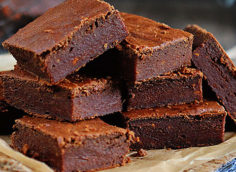There's little doubt that ketogenic diets cause dramatic weight loss. Of course, it's rare to find a person who actually achieves ketosis and stays in it, because the slightest sugary morsel can kick a butt out of ketosis. For that matter, so can too much protein.
It's more likely that many successful "keto" dieters are just eating a lot fewer calories.
There's also evidence that true keto diets can make your body perform better, at least in endurance events. But there's a big problem with that.
If you saw the movie, Mad Max: Fury Road, you were treated to scenes of the tumor-ridden War Boys riding on the hoods of the war wagons and spitting nitro into their carburetors. It made the vehicles hyper accelerate, but it undoubtedly took a toll on the engines (if reality were a consideration), eventually leading to blown head gaskets, damaged piston heads, or even cracked engine blocks.
The point is this: Just because we can do something to make an engine faster doesn't necessarily mean we've done something to make it better or extend its operating life. By the same token, just because you've done something to make your body run, row, or swim faster doesn't necessarily mean you've done something to make it better or healthier. And yeah, I'm talking to you, keto-diet boy.
Nothing to Mop Up the Damage
A true keto diet generally avoids entire food groups like grains, beans, most fruits, and some vegetables, leading to what I call a huge "polyphenolic and carotenoid deficit."
By avoiding so many foods and food groups, keto athletes are missing out on hundreds, possibly thousands of plant chemicals that are instrumental to human health in a number of ways.
For instance, endurance athletes subject their bodies to huge amounts of oxidative stress, and normally, they can count on the polyphenols and carotenoids they've eaten to counteract that oxidative stress.
But since there aren't sufficient polyphenols to mop up all those reactive oxygen species (ROS), their diet and exercise will, over time, lead them to suffer rampant inflammation, probably leading to the human equivalent of blown head gaskets and cracked engine blocks. (And no, vitamins won't help.)
In other words, the body breaks down in any number of ways; it becomes unhealthy. Hemoglobin levels drop. High levels of ammonia in the blood abound, impairing the central nervous system and causing fogginess. And that's just the early onset stuff.
But what about keto diets and anaerobic activities like weight lifting? Well, not only would anaerobic athletes likely end up suffering the same "blown head gaskets" as aerobic athletes, but there's a significant amount of evidence that keto diets don't help with anaerobic activities like lifting weights.
In fact, most research suggests that keto diets are detrimental to weight lifting.
Ketosis and Quick-Burst Energy
High-intensity exercise, like weight lifting, requires glycolysis, or the breakdown of sugar to supply energy. The keto diet, however, relies on fat for energy, which leaves you with nothing in the tank to supply the energy you need for anaerobic, or quick-burst, energy.
For instance, studies of cyclists have shown significantly decreased power output after following a keto diet for 4 weeks. Another study involving 16 athletes, released just a couple of weeks ago, found similar results.
After following a keto diet for four days, athletes fared significantly poorer on the Wingate anaerobic cycling test and the intermittent yo-yo recovery test (as compared to athletes who were on a high-carb diet).
Granted, the subjects were only on the diet for four days and it takes several months for someone to truly adapt to a keto diet. Nevertheless, the implications from this research and most of the other related research suggests that the diet won't be of much benefit to those who do high-intensity exercise.
Should CrossFitters Follow a Keto Diet?
Maybe. They most likely won't gain muscle. Their body comp may improve, as likely will their endurance, but it will, ultimately, affect their health negatively.
Should Endurance Athletes Follow a Keto Diet?
Endurance athletes will probably increase their performance, but at some cost to their long-term health.
Should Bodybuilders Follow a Keto Diet?
They'll probably get leaner than they ever have before, but their performance in the gym won't improve. They'll also likely lose some muscle, and they certainly won't gain any. (Trying to compensate by ingesting more protein will kick them out of ketosis.) And then there's that health thing.
They could, however, go keto for a short time in order to dump some body fat, realizing that they'll likely give up some muscle during the diet.





